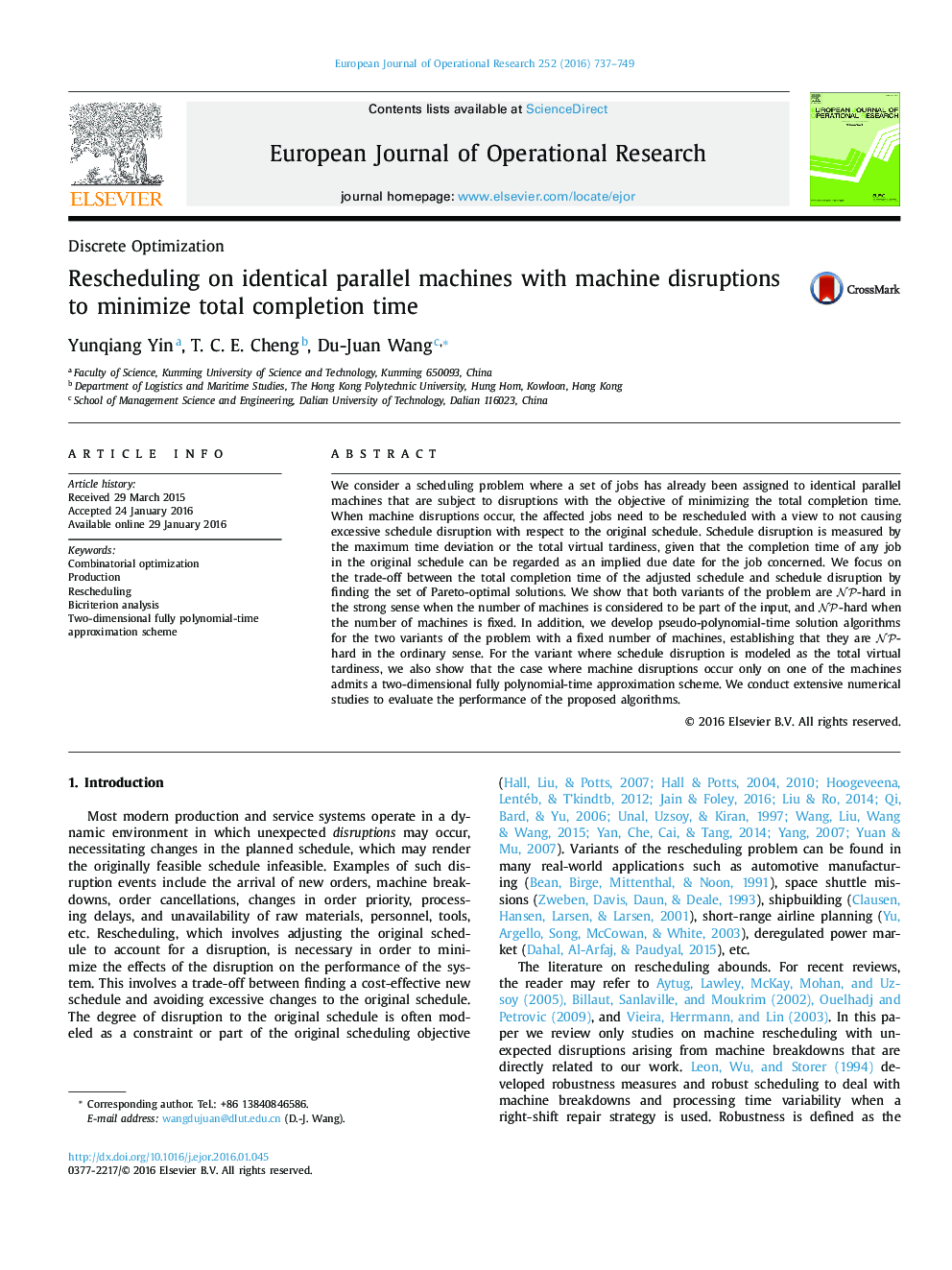| Article ID | Journal | Published Year | Pages | File Type |
|---|---|---|---|---|
| 6895634 | European Journal of Operational Research | 2016 | 13 Pages |
Abstract
We consider a scheduling problem where a set of jobs has already been assigned to identical parallel machines that are subject to disruptions with the objective of minimizing the total completion time. When machine disruptions occur, the affected jobs need to be rescheduled with a view to not causing excessive schedule disruption with respect to the original schedule. Schedule disruption is measured by the maximum time deviation or the total virtual tardiness, given that the completion time of any job in the original schedule can be regarded as an implied due date for the job concerned. We focus on the trade-off between the total completion time of the adjusted schedule and schedule disruption by finding the set of Pareto-optimal solutions. We show that both variants of the problem are NP-hard in the strong sense when the number of machines is considered to be part of the input, and NP-hard when the number of machines is fixed. In addition, we develop pseudo-polynomial-time solution algorithms for the two variants of the problem with a fixed number of machines, establishing that they are NP-hard in the ordinary sense. For the variant where schedule disruption is modeled as the total virtual tardiness, we also show that the case where machine disruptions occur only on one of the machines admits a two-dimensional fully polynomial-time approximation scheme. We conduct extensive numerical studies to evaluate the performance of the proposed algorithms.
Related Topics
Physical Sciences and Engineering
Computer Science
Computer Science (General)
Authors
Yunqiang Yin, T.C.E. Cheng, Du-Juan Wang,
